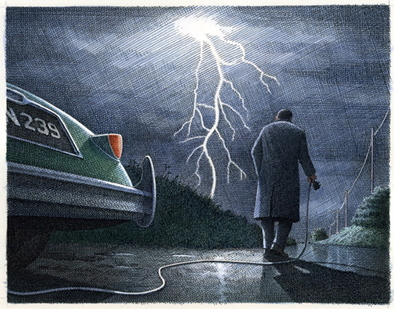- Sales of EV's have come down by 70 per cent in the year
- Around 950 dealers of e-bikes closed their operations
- High VAT rate of 12.5% on EV's in some states are hindering sales of EV's
- In 2013-14, electric two-wheeler sales crashed to a mere 21,000 units from 100,000 two years ago
- Companies like Ultra Motors, BSA Motors have quit the e-bike industry
- Bigger players in the e-bike market like Hero Electric too are suffering - Hero electric two-wheeler sales dropped from 100,000 units in 2011-12 to 42,000 in 2012-13 and 21,000 in 2013-14.
- The only electric car maker - Mahindra e2o only has sold around 1000 cars over 15 months. They had a target of selling 500 cars per month.
- MNC automobile companies like Nissan, BMW, GM are postponing any ideas of selling their EV's in the Indian market
The Ministry of New & Renewable Energy (MNRE) announced a financial incentive scheme for EV buyers in 2010.
The scheme basically provided incentives of up to 20% on the ex-factory prices of the vehicles.
The cap on the incentive was – Rs 4,000 for low speed electric two wheelers, Rs 5,000 for high speed electric two wheelers. The electric car, Revai too qualified for the incentive of around Rs 1 Lakh.
This help from the government propelled the sales of e-bikes and everything looked good until the government pulled the plug on the subsidies in 2012, which resulted in over 70% fall in sales of EV’s.
|
Is Government Inaction the only problem?
Its very clear that the lack of subsidies or help from the government has resulted in this downward spiral for the EV industry. But is there another factor that has not been considered - The quality of EV's. In this blog - "The ghosts of EVs past", Mr Tarun Mehta, co-founder of Ather technologies (an innovative startup making next generation e-bikes), highlights how people embraced EV's with lots of enthusiasm but have been let down by the products themselves. The products (e-bikes and first generation Reva electric car) generally had the following issues
|
The government has approved theNEMMP 2020 scheme. Under the plan, the government will invest up to Rs 14,000 crore in creating infrastructure and promoting the use of environment-friendly electric vehicles in the country.
According to study commissioned by the heavy industries ministry, in collaboration with industry stakeholders, India has the potential for sales of six-seven million electric cars and two-wheelers by 2020.
"A Scheme under the National Electric Mobility Mission 2020 has been proposed for Expenditure Finance Committee and Cabinet. The scheme is to be approved by EFC and cabinet,". This was quoted by our Deputy Heavy Industries Minister P Radhakrishnan.
So its a matter of time, before we get help from the center. What about the quality of EV's? We should be confident in expecting much better from the industry. Mahindra e2o is a serious upgrade from the first generation Reva. Once the policies are in place, MNC's could flood the market. Mahindra plans to launch other options like the Verito Electric Sedan once the subsidies roll out. There is a market for the likes of the Nissan Leaf, Chevy Spark EV in India.
When it comes to e-bikes, companies like Hero Electric, YoBykes are planing to launch better quality products.
Innovative companies like Terra Motors and exciting startups like Ather Energy are planning to launch next generation
e-bikes that will ensure owning them will be an attractive proposition.
The electric and hybrid vehicle industry is at a nascent stage in India. The current crisis is only a small hickup for the industry. With strong support from the Government on R&D investments, establishing a charging infrastructure and subsidies on electric vehicles through the National Electric Mobility Mission Plan 2020, the EV industry does indeed showcase a positive outlook over the next 5-8 years.

